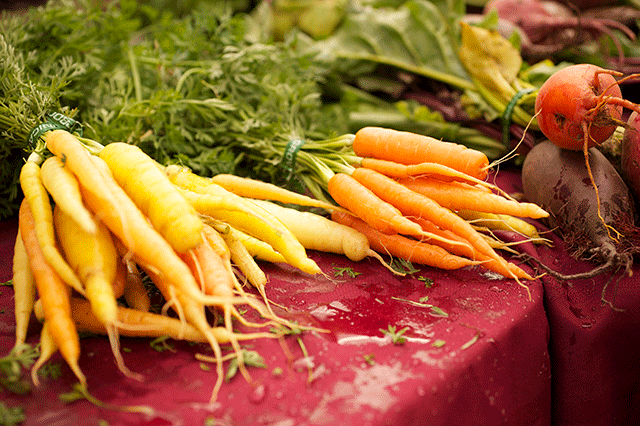
This program, supported by a four-year, $250,000 grant, will eventually help create a new Sustainable Food Systems minor (a combination of existing courses from a variety of disciplines), a new Sustainable Food Systems course, and paid student internships. The program is designed to attract and support undergraduate and graduate students from underrepresented groups in order to prepare them for careers related to the food, agriculture, natural resources, and human sciences.
La Comida Nos Une will focus not only on the importance of food supply chains, but also sustainability within all levels of those chains, from agricultural workers to consumers, and their intersections with social justice. Courses will examine topics like community health and nutrition, food deserts, aquaculture, grass-fed livestock on regional pasture and rangelands, and regenerative practices in agriculture.
The program is a collaboration between the University’s three colleges—College of Natural Resources & Sciences (CNRS), College of Professional Studies (CPS), and College of Arts, Humanities & Social Sciences (CAHSS). With support from CAHSS for the proposal writing, this grant is supported by the Hispanic-Serving Institutions Education Grants Program (HSI), grant no. 2020-38422-32246, from the USDA National Institute of Food and Agriculture. The grant will be administered through HSU Sponsored Programs Foundation, which administers externally-funded grants/contracts and submits proposals to external funding agencies on behalf of HSU.
“This grant is very timely,” says Susan Edinger Marshall, professor of Rangeland Resource Science, who will direct the project with Kinesiology Professor Chris Hopper. “We submitted this grant before the COVID-19 crisis, which has only highlighted the complex reality of the food systems in this country. For example, midwestern meat packing plants have become COVID outbreak hotbeds, disrupting meat supplies to some regions, and the pandemic has been impacting farm worker health and safety, which affects food supplies across the nation.”
In addition to creating a Sustainable Food Systems minor, La Comida Nos Une will create a new course, enhance existing courses across the University, and create a cohort of continuing HSU sophomores and incoming transfer students that will include funding for those who participate. The program will also offer paid student internships.
The internships will serve to introduce students, many of whom are from out of the area, to operations of the local food system, while supporting innovative economic growth for the region. It will also engage students with local community partners to address pressing rural food system issues, such as: increasing use of local goods in the value-added food chain; promoting the supply of regional seafood and meat; development and research on sustainable agricultural practices; addressing barriers to entry for new farmers and ranchers; increasing food sovereignty, racial equity, and low-income access to healthy food; and expanding opportunities in food tourism.
What makes La Comida Nos Une so special is that it not only unites the three colleges of the University through its course offerings, but that its very theme of food is a universal common ground.
“Food is important for bringing people together. I am drawn to food issues, because food touches everything in our lives in one way or another,” says Anthropology instructor May Patiño, who coordinates the Humboldt Food Policy Council and will be the project coordinator. “That is a theme behind La Comida Nos Une. We felt that to support HSU’s HSI status we would like to gather our students, our faculty, and our community around food. So we want to make sure that this program includes many opportunities for shared meals, either virtual or in-person (in the future), to talk about food systems and share about our cultural connections and relationships to food.”
For more information about La Comida Nos Une write to comida@humboldt.edu.